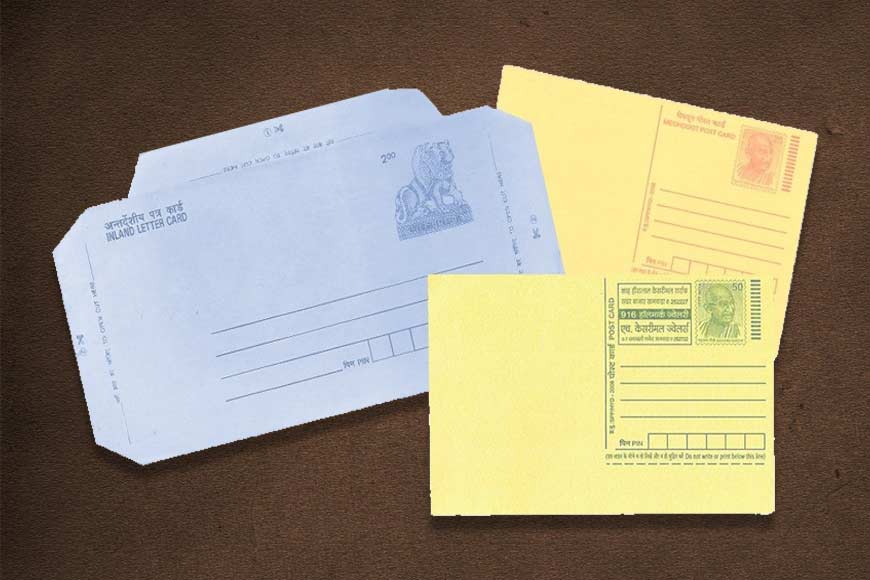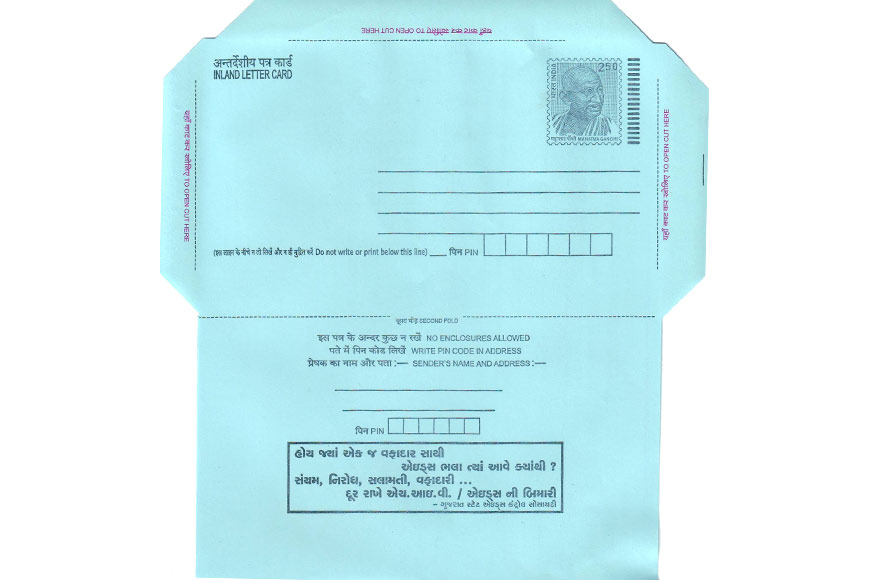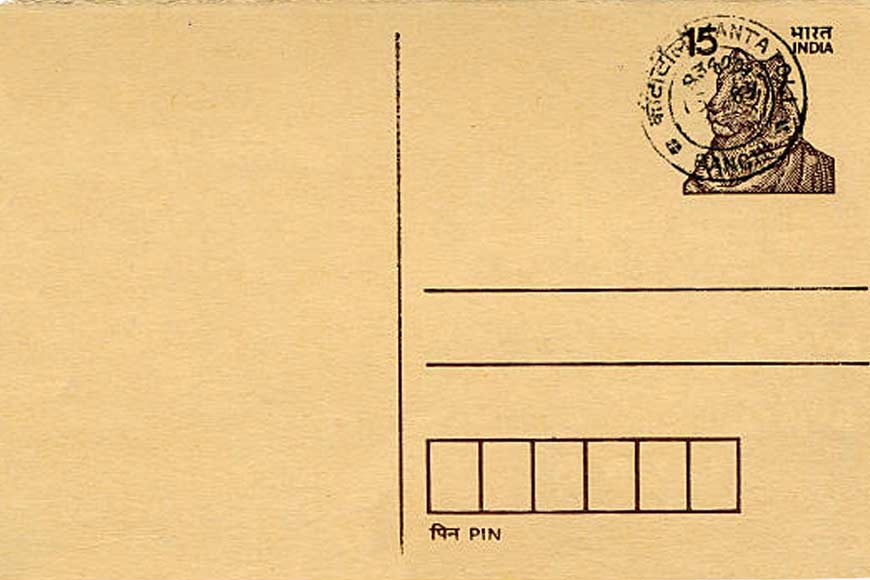Where have all the letters gone?- GetBengal story

Kaaler jatrar dhwani shunite ki pao?
Tari rath nityoi udhao,
Jagay ichhe antarikshe hridoy spandan,
Chakre pishto andharer bokhyo phata tarar krondon….
Can you hear the sounds of the immortal time passing by? The Chariot of Time passes in the vicinity of the deep darkness of the universe creating a rhythm divine. The time passes by and it appears as if the twinkling stars are crying out for the same through the dark crevices of the sky…
"Ogo bondhu
Sei dhabomaan kaal
Joraye dhorilo more pheli taar jaal
Tuli nilo druto raathe
Dushshahoshi bhromoner pathe
Toma hote bohu dure……."
O my friend! That ever-passing time has scooped me up in its net and takes me on a travel of daring adventure, far from you.
These are immortal letters transcending the joy of bonding two hearts again after their lost love. Rabindranath Tagore’s Shesher Kabita was not just a masterpiece written by him at the age of 67, but also brings out how letters can be at the core of life and literature. Letters have always played a crucial role in Bengal’s rural and urban lives as reflected often in the masterpieces of Bengali literature. The yearning for a letter in Bibhutibhushan Bandopadhyay’s Pather Pancjali, where Sarbajaya waits for the letter from her husband who has been in town to earn a living for the family, and how she fails to receive a single letter that would otherwise help her to know that her husband would return, but before that she loses all, specially the death of her daughter Durga as etched in the memory of world cinema through the cinematographic representation of Satyajit Ray’s movie based on that book. Letters have played a very important role in Sarat Chandra Chattopadhyay and Tagore’s life as well, not just in literature. Tagore loved writing letters and many such written to his muse Victoria Ocampo and vice versa have been stored as a treasure. So did Sarat Chandra, as Srikanto wrote to Rajlakshmi about his exploits in Rangoon. Same we find in the creations of poets like Nirendranath Chakraborty, Sankha Ghosh and many others. Letters have often created humourous situations too, with them falling in the wrong hands and creating a furore in the family --- like a love letter going astray and landing up in the hands of the family patriarch leading to ‘all hell breaking loose!’ Bengalis thus loved writing and reading letters or even receiving letters.
 Inland Letter Card
Inland Letter Card
Yet it seems that tradition is no more. Letters are no more being written in Bengal! As per the West Bengal Postal Circle, not a single postcard or inland letter has been sent on a personal note in the last 3 years! Neither in the cities nor even in the villages. The story is the same everywhere. “This is extremely sad and also detrimental to the next generation. Thanks to the inroads of social media, mobile phones, and laptops, where emails and Whatsapp messages have become the order of the day, we have just forgotten to go to the Post Office and buy that humble yellow postcard or that blue Inland Letter and drop a New Year or Birthday wish to anyone we care for,” says Shiuli Biswas, a teacher at a city school. Biswas also feels this trend is dangerous as a lack of written communication is actually robbing a whole generation of proper connect. “This present generation is so hooked to their gadgets that they do not even know postcards and inlands exist, and that a letter can be handwritten.”
Shefali Tarafdar, a mother of a 16-year-old is aghast at the mini words as she calls the abbreviations that her daughter uses for communicating. “I cannot even understand their communication as written on mobile messages. A6 for Achha or OK! C U for See you! For me, CU is Calcutta University. A generation that has even forgotten the language, how can you expect they will write full-form letters and communicate!”
Even a decade back as per Postal Data, a few postcards and inlands were sent between homes as part of Subho Bijoya greetings, or even in rural Bengal, the turmeric-sindoor highlighted postcards inviting for a marriage ceremony. Replies were sent in return postcards, often attached to the original ones, acknowledging the invitation or communicating one’s best wishes. Niraj Kumar, West Bengal Circle’s Postmaster General has taken up an active stand to bring back letter writing in Bengal, How? “Letters are an intrinsic part of civilisation, it helps us to think, to wonder, to rationalise, assimilate, and initiates a whole lot of mental exercise. When we are writing a letter, we talk to ourselves, as to how much we shall write, how much we shall express and hence it is very important for school and college students to write letters which unfortunately they are no longer doing. Hence, we have thought of an innovative idea to put an end to this drought in writing letters.”
 Post Card
Post Card
The Postal Circle has thought of a letter-writing competition among school and college students to boost their interest in letter writing and help them bring back the dying art of postcards and inland letter writing. As per the mailing section of the Postal Circle, every year hundreds of postcards and inland letters are sent to the post offices across Bengal, but other than business organisations or NGOs, no one uses them on an individual basis. Like Ramkrishna Mission still sends New Year Greetings to every disciple through inland letters. Tarafdar adds: “This is indeed a good move on the part of the Postal Department. Imagine the trepidation one has before opening the sealed mouth of an inland letter, anticipating the words that will pop out as soon as the letter is opened!”
In the words of famous educationist and academician Dr. Pabitra Sarkar: “Oh Letter! Your days are numbered. You no more act as a messenger to households. The words written on you no more bring tears to anyone or make anyone laugh out loud.” Even the rural post offices no longer find personal letters to be sent to addresses, the letter boxes stand empty. May be the age of mobile phones has invaded every nook and corner of Bengal and no more anyone waits by the door to hear that cringing bell of a postman’s cycle going by!











